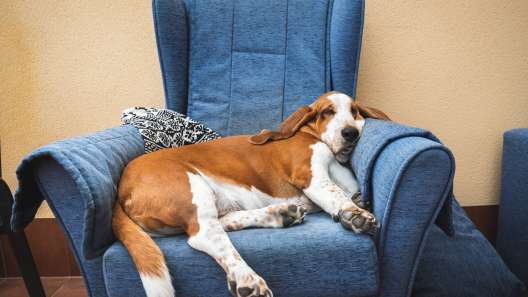
-
Activity Level:
moderate
-
Shedding Level:
moderate
-
Grooming Level:
high
-
Trainability:
high
-
Good for Novice Owners:
high
-
Adaptability:
high
-
Kid/Pet Friendly:
often
-
Prey Drive:
moderate
-
Watchdog:
aware
- Average Size: Small
- Average Lifespan: 14-16 years
Havanese Mix Dog Breed Information
Overview
Temperament
Adaptability
Health
Owner Experience
Grooming
Activity Level
Size
Life Span
A Havanese Mix is a cross between a Havanese and another dog breed. A mixed-breed dog can inherit any combination of characteristics from one or both of their parent breeds. So, it’s important to ask the breeder about the other parent breed in the mix.
Should a Havanese Mix take after their Havanese parent, they will be a small dog with a sweet demeanor and a big, sociable personality. Energetic, playful, and devoted to their families, a Havanese Mix should be a true companion.
Havanese tend to be sweet, loving little dogs that are friendly and love to play. They tend to get along well with children, other dogs, and other pets. Well-socialized Havanese even tend to be open and friendly with strangers. They also do not tend to bark a lot unless you train them into it.
If the other parent breed is similar, you can expect the same from a Havanese Mix. Since the other parent breed will likely introduce their own set of quirks and traits, you do want to ask the breeder about them. You can also meet the mother in-person to see what manners and behavior she is modeling for her puppies.
Havanese tend to be highly adaptable dogs that do well in most climates and almost any living situation. But, they may need to layer up with some winter dog products to stay warm when the temperatures drop.
They are happiest when they are spending time with you, so they do not like to be left alone for long periods of time. If the other parent breed is similar and does not introduce any other quirks that would affect adaptability, you can expect the same from a Havanese Mix.
Are mixed-breed dogs healthier than purebred dogs? They can be, but it’s not a guarantee. A mix can get lucky and inherit none of the health conditions common to their parent breeds, but they can also inherit a combination from one or both or even all of them.
From the Havanese side, potential health conditions to be aware of in a Havanese Mix include Legg-Calve-Perthes disease, luxating patella, deafness, eye disorders, heart murmurs, and chondrodysplasia. The other breed could introduce some other potential concerns, so you do want to ask about them.
Reputable breeds will screen their dog to avoid passing issues on to puppies. So, you should be asking about the health history of both of the parents anyway. You can also ask to see any results or clearances from health tests that have been done.
As a small dog breed, Havanese Mix will also be more prone to developing dental diseases, especially gum disease, later in life. Gum disease in dogs is one of the most common health issues they face and can lead to other serious health problems. The best way to help avoid it is to start good dental care early and keep it consistent throughout your dog’s life.
The Havanese is a highly intelligent dog breed that is generally obedient and eager to please. They tend to be a good fit for owners of all experience levels. The other parent breed could make a Havanese Mix just as easy or more difficult to train, so you do want to ask the breeder about them.
Even if you don’t think you will need them, puppy training classes still tend to be a good idea. They often offer opportunities to socialize a puppy while also strengthening your bond with them. Plus, they help reinforce the training you’re working on at home and keep it consistent.
A Havanese Mix can inherit a coat similar to one of their parents or a coat that is truly a mix of both of them. Should they inherit a Havanese coat, it will be low-shedding, but will also be higher maintenance, especially if it will be kept in a longer clip. They will need daily brushing or at least brushing every other day, the occasional bath, and professional grooming a few times a year.
In addition to coat care, you will also need to care for your Havanese Mix’s nails, ears, and teeth. Depending on how long they grow, you will need to cut your dog’s nails once or twice a month to keep them from growing too long.
You should also check your dog’s ears weekly to make sure they are dry, clean, and clear of debris, pests, or other issues. You won’t always need to clean them, but regular checks and carefully cleaning your dog’s ears when needed can help prevent ear infections.
Because they are more prone to developing gum disease, good dental care for dogs is even more important for your Havanese Mix. Using an enzyme toothpaste or brushing teeth daily is ideal. From there, you can also work with the vet for high-quality, safe dental hygiene chews or treats and even a “dental care diet” formulated for your dog’s needs.
Havanese are small dogs with a moderate activity level. Although they love to cuddle, they are not couch potatoes. But, they aren’t high-energy dogs either. Daily walks plus some playtime are usually enough for this dog. They love being with you, so they will likely be up for more activity if you are. Just make sure they aren’t overexerting themselves trying to keep up!
The other parent breed could affect the potential range of activity requirements, so you do want to ask the breeder about them. If they also have a low to moderate activity level, then you can expect something similar in a Havanese Mix. However, if they are a high-energy breed, then you will need to be prepared for that possibility.
A fully-grown Havanese usually stands 8.5-11.5 inches tall and weighs 7-15 pounds. The other parent breed could affect this, especially if they are the mother, so you want to ask the breeder about them. Although it’s not a guarantee, you can also meet the mother in-person to get an idea of what size to expect in a fully-grown Havanese Mix.
Havanese generally live for 14-16 years. Although the other parent may affect this slightly, you should be able to expect a similar life span in a Havanese Mix.









